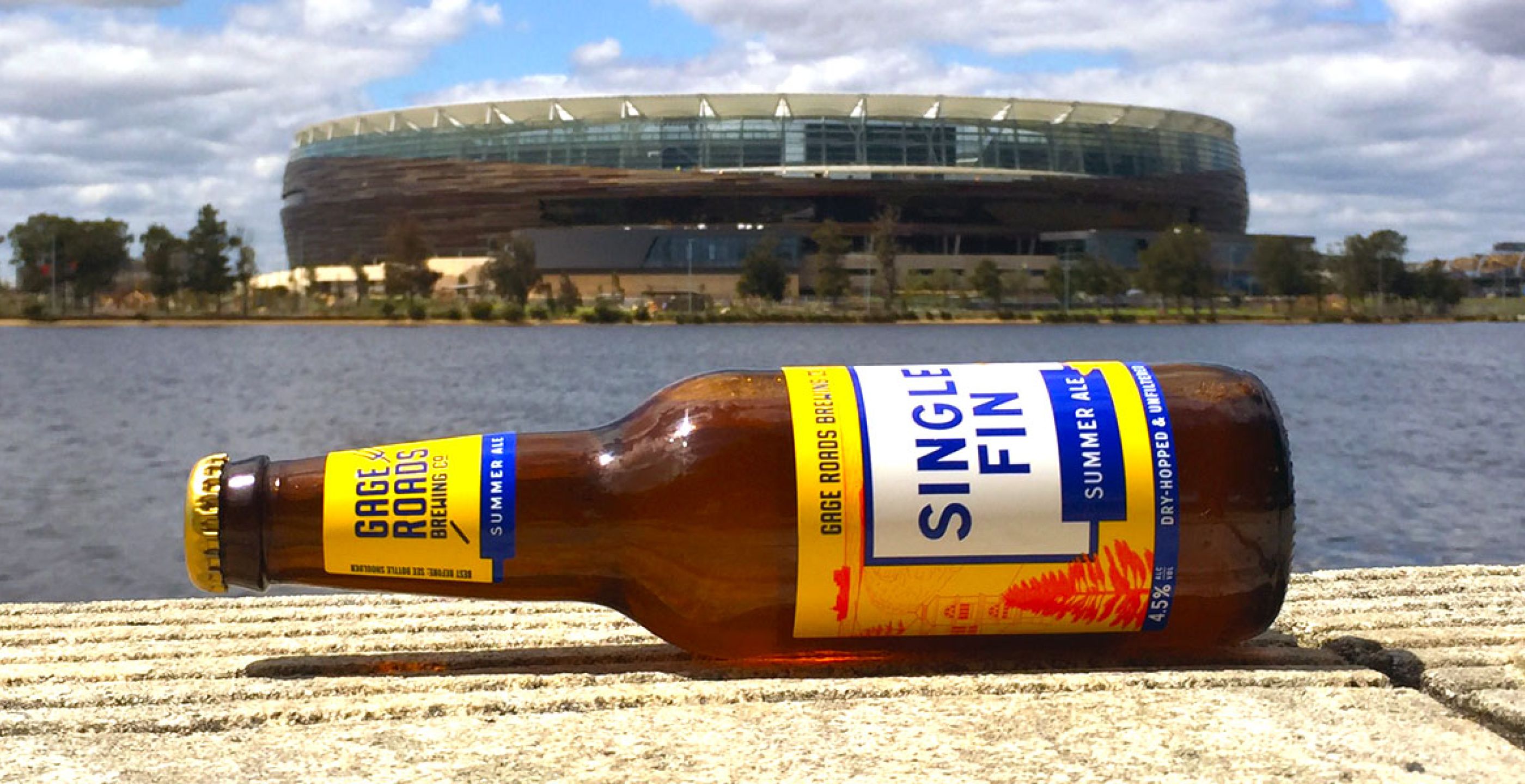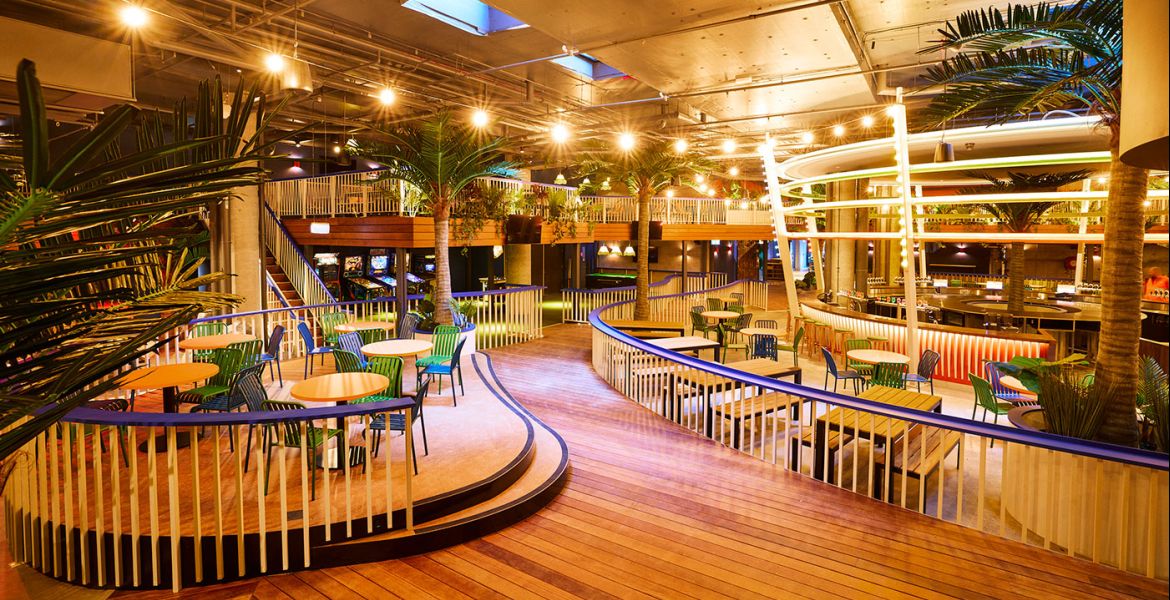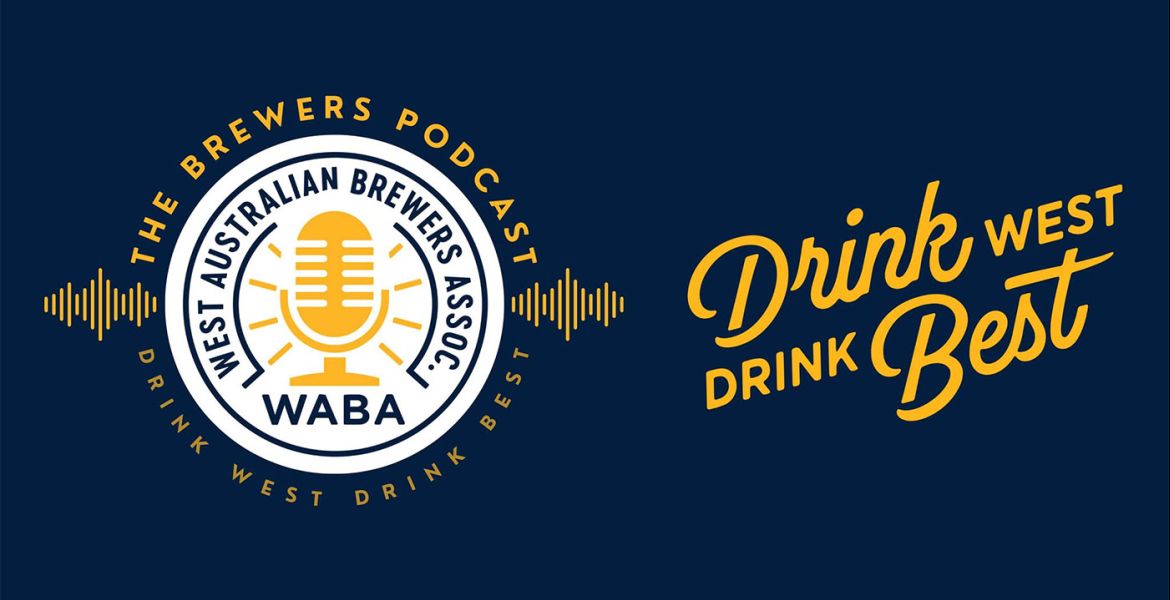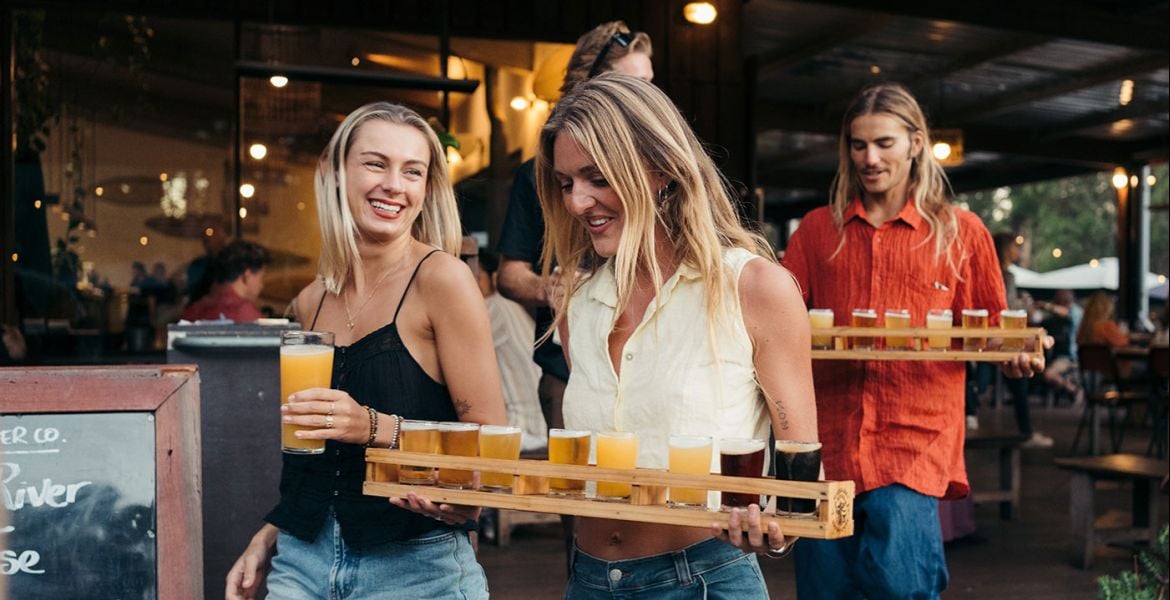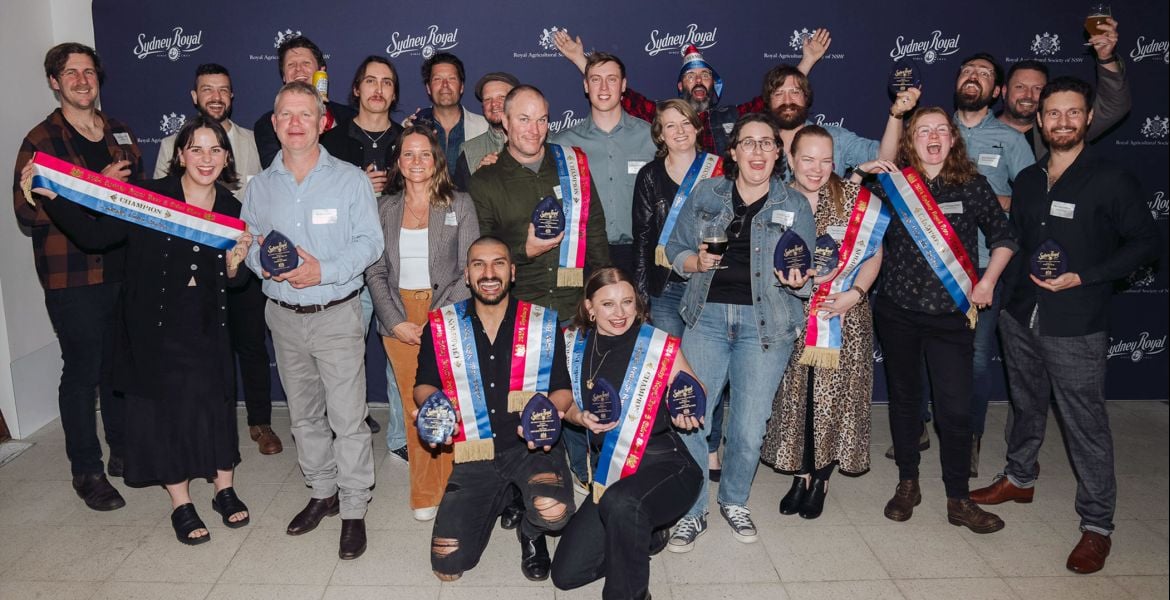The announcement of Gage Road’s exclusive supply rights to the new Perth Stadium is another accolade for a brewery that continues to build momentum. Guy Southern spoke with National Sales & Marketing Manager, Scott Player, about the road to the deal and what’s next for Gage.
Gage Roads Brewing Co arrived in 2005, subsequently garnering broad exposure following the 2009 Woolworths purchase of a 25 percent stake in the brewery. This deal allowed Gage Roads to expand the capacity of its brewery significantly, as well as contract brew for a range of breweries that over the years has included Matso’s, Two Birds and Woolworths’ private label brands.
It worked well for a time, leading to beers brewed at the Palmyra site landing in 46 percent of Australian supermarkets via Woolworths channels. However, the relationship also placed a ceiling on the potential for Gage Roads’ own brand growth. Expansion in the availability of contract brewing and a competitive supermarket industry in which the Woolworths share price halved in two years presented Gage Roads with an opportunity to, as they termed it, "Return to Craft" in 2016.
The $1.56 million deal to buy back independence from Woolworths was part of a $10 million dollar capital raising, mostly funded through a non-renounceable share issue to existing shareholders, which allowed for further brewery expansion and paying down existing debt. Such numbers are eye-watering for most craft breweries but being a listed company has allowed Gage Roads greater access to finance, a factor that can often stifle breweries’ expansion plans.
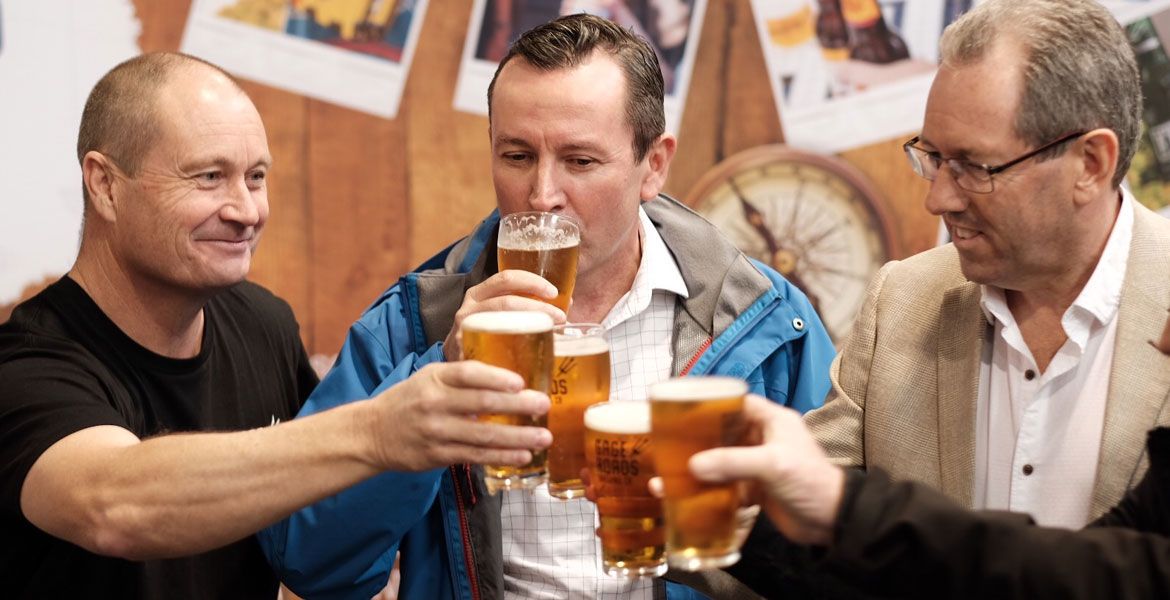
National sales & marketing manager Scott Player (above left with WA Premier Mark McGowan and Perth Stadium CEO Mike McKenna earlier in the week) describes the separation as a well timed and a “nice, mutually beneficial agreement” but it’s also hard not to see this as a moment the brewing gods shone a golden, summer ale-like light on the Palmyra brewery as validation for the work that was already underway.
“This wasn't an overnight success and the last 12 months didn’t just suddenly happen, there was a hell of a lot of groundwork that went into it behind the scenes. There was a lot of on-premise stuff that was done,” says Scott.
“Our whole brand marketing mantra is around ‘Brand in hand’. You know billboards are not going to tell you how good Single Fin tastes but you go to an event like the Perth Fringe Festival, for argument’s sake, where you’re shedding you skin a bit, you’re open to something new and you're open to trying new things, new products. You get to enjoy a Single Fin watching a great show. That's when you're going to realise whether or not it fits for you as a brand.”
At a time when businesses throughout the local beer world are paying closer attention to what their brand is, often reimagining how they present themselves to the world, and in which the entire craft beer industry is wrestling with its brand as a whole – juggling the pros and cons of terms like “local” and “independent”, for example – such comments highlight branding's importance in an increasingly competitive world.
“That’s where you get your ‘evangelists’, these guys and girls that really fall in love your brand, they believe in it and then they spread the word for you,” he adds. “And when you get enough of that momentum then you can see your brand take off.
“The reality of it is, if you are a craft brewery, you never expect to be an overnight success. It's a long grind and you're not going to have the marketing budget and sort of reach that the big breweries have got but it’s a much more sustainable growth.
“It’s a slow burn to get there but you're not an overnight success that’s gone tomorrow and Creatures is a great example of that. Little Creatures took a long time from 2000 to when they really got on the radar and that was through a lot of hard groundwork.”
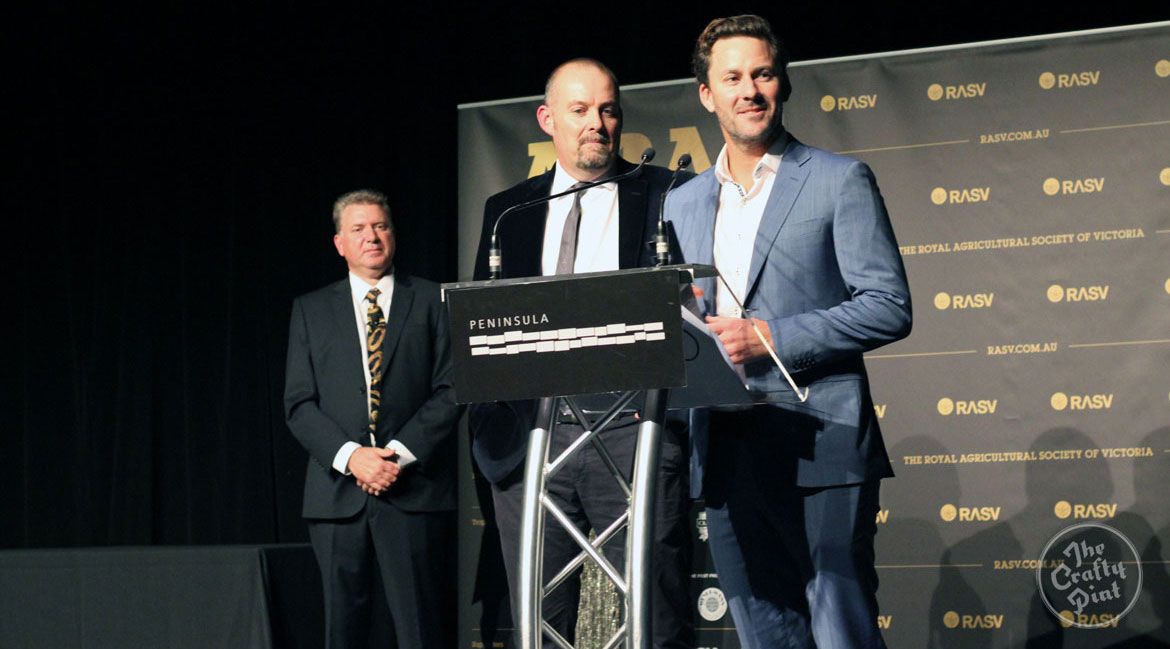
By 2016, hard yards in bars and bottleshops, plus securing influential festival contracts, had certainly paid off for Gage Roads. At the time Woolworths talked about decoupling, the Gage brand was shifting 300,000 cases a year on the back of an identity founded on a small shipping lane between Fremantle and a rocky, Quokka filled island 22km offshore.
Little Dove’s Champion Australian Beer trophy at the Australian International Beer Awards 2016 certainly surprised many but, with a year’s hindsight, this should have been an early indicator of the focus and drive the brewery’s five year strategy was starting to deliver.
“Timing was perfect. It came at a time where we had announced that we had bought back our independence,” says Scott. “The groundswell from consumers meant we had huge opportunities with tap points we may not have had prior, we got to engage with some really important customers and show them what we are like to deal with and, obviously, Little Dove is a sensational beer. It’s still our largest selling draught beer today and it’s opened so many doors for us.”
One of those doors was the one that will see them supply beer and cider exclusively for 1.5 million annual visitors to Australia’s third largest stadium.
Back when the tender was released in May, there was a lot of public and government interest in the style of beer offering at the new Perth stadium. WA Premier Mark McGowan suggested only mid-strength beers should be available, a move that attracted such wide ranging negative public sentiment he has since backed away. Gage Roads Pils 3.5, Narrow Neck Session IPA (reduced in ABV since it was first launched) and, potentially, a new lager seem the likeliest candidates to be refreshing 60,000 punters at a time, but the final decision sits with Liquor Licensing.
While draught beer will be supplied for general admission areas, the premium bars and corporate suites will also have packaged product available. The stadium tender also refers to a 28 tap “Boutique beer bar” Scott says will be supported by Gage personnel for events and may also feature rotating taps showcasing other Western Australian craft beers, an opportunity they included in their tender proposal.
With Cheeky Monkey securing a spot for its Pale Ale with Singapore Airlines (pictured below), WA’s independents have had a good time of it recently, something Scott says reflects trends in the beer industry.
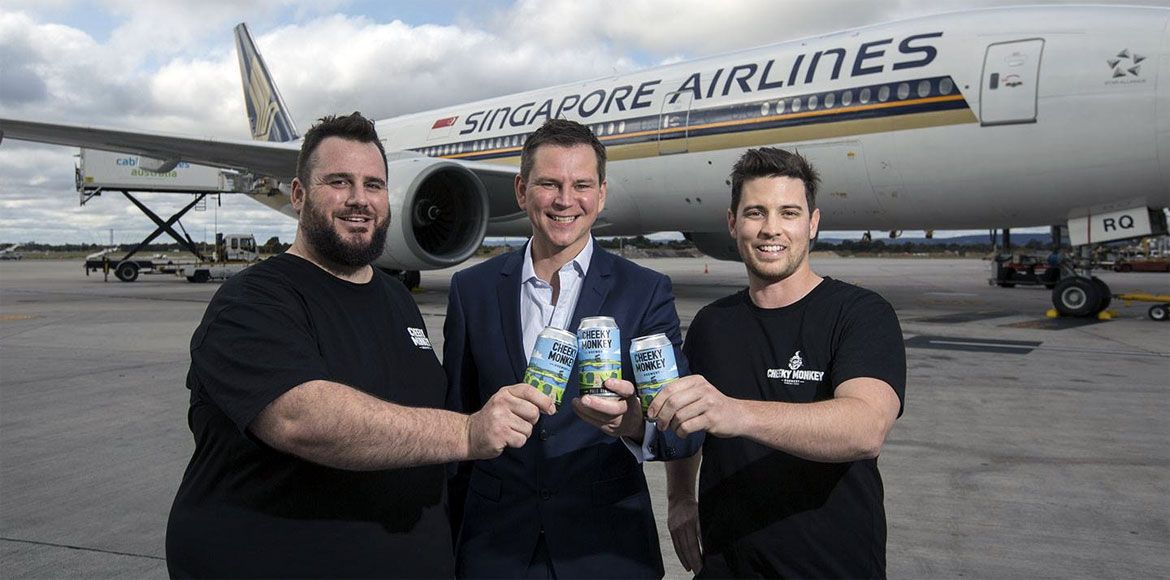
You know there is a lot of regionality now [and I see] that becoming stronger and stronger,” he says. “People want to buy local. So we've gone from the duopoly of two [to a place where] the market is now filled by small breweries and choice and variety.
“But if you compare to a lot of other flavour industries, whether it’s wine, cheese, bread or coffee, you name it, consumers have become very sophisticated about their choice, they want variety. They like lots of flavour and you know 95 percent of beer is still lager.
“And, nothing wrong with lager. I sort compare it to white bread: if you walked into a bakery and all they had was white bread you’d think the place was crazy. You’d be disappointed with your choice. It’s OK to have a sandwich with white bread but you just may want to have sandwich with something else.”
He expects there to be further acquisitions – “As craft beer becomes more important in the overall beer landscape then obviously successful craft brands are potentially going to get gobbled up by the big guys” – and believes transparency, in ownership or provenance, for example, is increasingly important too.
But, overall, he believes the future is bright for Australia’s growing number of brewers, with craft beer continuing to “grow a very rapid rate and become more of a staple part of people's consumer repertoire, as opposed to occasion based drinking.”
With WA sports fans soon able to enjoy a locally brewed beer at Perth Stadium, even those big sporting occasions will become a means of normalising and popularising craft beer.
“Hopefully [our deal with Perth Stadium sets] a bit of a benchmark for other stadiums and opens the opens the door for other brewers who might put their hand up for another stadium or opportunity down the track,” says Scott.
“Cheeky Monkey’s Singapore Airlines deal and all these things are little changes in perception and culture. It all mounts up and the momentum moves very quickly once you start getting everybody moving in the right direction.”
About the author: Guy drinks and writes about beer, goes for a run most mornings and makes his own chilli hot sauce. Find out more on Goodtimes Craft Beer via Facebook and Instagram.





